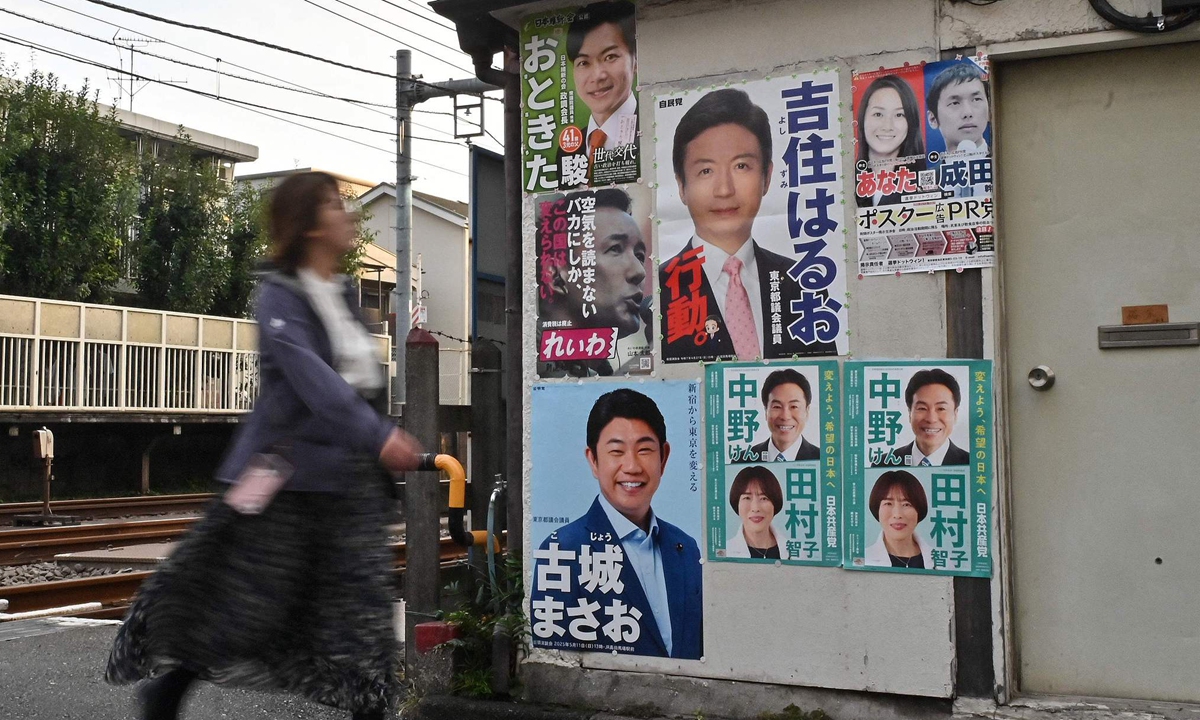
A woman walks past political posters before polls open for elections to Japan's lower house in Tokyo on October 27, 2024. Photo: VCG
Japan held elections for its lower house on Sunday and although the results are not expected until Monday, analysts said if the ruling Liberal Democratic Party (LDP)-Komeito coalition fails to maintain its majority, there will be much uncertainty surrounding Japan's policies on economy, politics, diplomacy and other crucial areas. If the results favor new Prime Minister Shigeru Ishiba, he will have a relatively stable internal environment to push his reforms.
Japanese voters cast their ballots to fill the lower house's 465 seats by choosing from 1,344 candidates on Sunday amid swirling uncertainty over the race, Japanese media Nikkei Asia reported. Voting was set to end at 8 pm local time, with results starting to roll in later in the evening and into the following morning, according to the Japanese report.
The primary focus is on whether the current ruling coalition of the LDP and its junior partner Komeito can maintain a majority, said Nikkei Asia.
Prime Minister Ishiba "seeks a fresh mandate amid greater scrutiny over the ruling party's handling of political funds," Japanese media Kyodo News reported on Sunday. The LDP, along with Komeito, aims to retain a majority in the 465-member House of Representatives, but media polls indicate they are facing headwinds, Kyodo reported.
Experts said that if the LDP-Komeito coalition fails to safeguard a majority in the lower house, then Japan's politics, economy and diplomacy could become unsustainable. But if the coalition can maintain a majority, then the Ishiba administration will be able to keep pushing their reforms and build relatively stable ties with Japan's key partners and neighbors, which is why the international community is paying attention to the election.
Lü Chao, director of the Institute of US and East Asian Studies at Liaoning University, told the Global Times on Sunday that these elections will decide whether the Ishiba administration will have a stable internal environment to execute a sustained program of reform and other policies. If they lose their majority, Ishiba will become a lame duck and could see his term in office come to a premature end, and this might add uncertainties to Japan's future policies.
Da Zhigang, a researcher at the Institute of Northeast Asian Studies at Heilongjiang Provincial Academy of Social Sciences, told the Global Times that although some Japanese polls indicated the LDP-Komeito coalition is facing headwinds, opposition parties in Japan are not very united nationally, and the percentage of voter turnout in will impact the result significantly.




